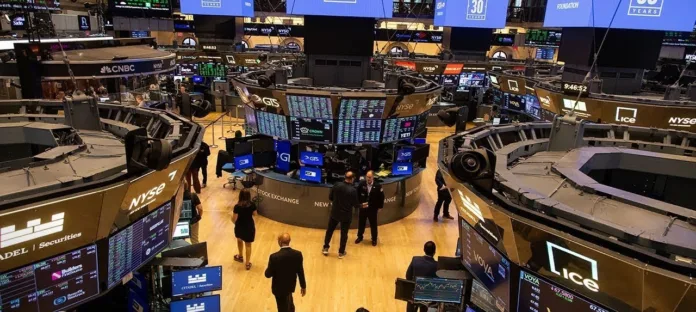The US stock market experiences its most significant weekly decline in 18 months as concerns about economic slowdown and inflation pressure investors.
In a dramatic turn of events, US stocks recorded their worst weekly performance in 18 months, driven by escalating fears of an economic slowdown and persistent inflationary pressures. The market turmoil reflects growing investor anxiety over the future trajectory of the US economy, highlighting vulnerabilities that have intensified in recent weeks.
The broad-based sell-off affected major indices, with the S&P 500, Dow Jones Industrial Average, and Nasdaq all suffering significant losses. The S&P 500, a key gauge of US equities, dropped by 4.2% over the week, while the Dow Jones fell by 3.8%, and the Nasdaq Composite lost 5.1%. The declines marked a stark contrast to the optimistic gains seen earlier in the year, underscoring the fragility of the market amid shifting economic signals.
Economic data released during the week revealed a slowdown in key economic indicators, including consumer spending and manufacturing output. Analysts pointed to these figures as evidence that the economy might be losing momentum, which, coupled with ongoing inflation concerns, has weighed heavily on investor sentiment.
The Federal Reserve’s monetary policy also contributed to market unease. Recent statements from Fed officials regarding the potential for further interest rate hikes to combat inflation have added to the market’s anxiety. Higher interest rates could slow economic growth and affect corporate profits, adding to the current market jitters.
Corporate earnings reports also played a role in the market decline. Several major companies reported weaker-than-expected results and issued cautious outlooks, further fueling concerns about the economic environment. These disappointing earnings results have prompted investors to reassess their portfolios and seek safer assets, leading to a broader market sell-off.
The global economic backdrop has not been kind to markets either. International economic challenges, including geopolitical tensions and slower growth in key markets such as China, have compounded the uncertainty. As global economic conditions become more volatile, US investors are increasingly concerned about the impact on domestic growth and corporate earnings.
Despite these challenges, some analysts remain optimistic about the long-term prospects for the US economy. They argue that while the current economic signals are concerning, the underlying strength of the economy, including a robust labour market and consumer spending, could support a recovery. However, the path to stability may be bumpy, and investors will need to navigate these uncertainties with caution.
As the market grapples with these developments, investors are closely watching economic indicators and Fed policy moves for clues about the future direction of the economy. The current volatility underscores the importance of staying informed and prepared for further market fluctuations in the coming months.
Analysis
Political Impact
The steep decline in US stocks could have political ramifications, especially as the current administration faces increasing scrutiny over economic management. The market’s poor performance may prompt calls for policy adjustments or intervention from lawmakers and government officials. Additionally, the downturn could influence mid-term elections and shape political debates around economic policy and fiscal responsibility.
Social Influence
The significant market drop can have wide-reaching social effects, particularly on retirement accounts and individual investments. As stock market volatility impacts people’s savings and investments, it may lead to increased anxiety among the general public and affect consumer confidence. Additionally, the market downturn could influence spending behaviours and investment strategies among households.
Racial Perspective
Economic downturns often disproportionately affect marginalized communities, exacerbating existing inequalities. The current market decline could lead to heightened economic disparities, impacting job security and financial stability for minority groups. Addressing these inequalities becomes crucial as policymakers consider measures to support vulnerable populations during economic stress.
Gender Perspective
Women, who are statistically more likely to have retirement savings and investments in the stock market, may face particular challenges during periods of market volatility. The impact on their financial security highlights the need for targeted support and financial education to help women navigate economic uncertainties and protect their investments.
Economic Impact
The market’s worst week in 18 months underscores significant economic concerns, including the risk of a slowdown and the potential impact on corporate profits. The volatility may affect investor confidence and spending patterns, influencing broader economic activity. Additionally, continued market turbulence could prompt shifts in monetary policy, potentially leading to higher interest rates and further implications for economic growth.
